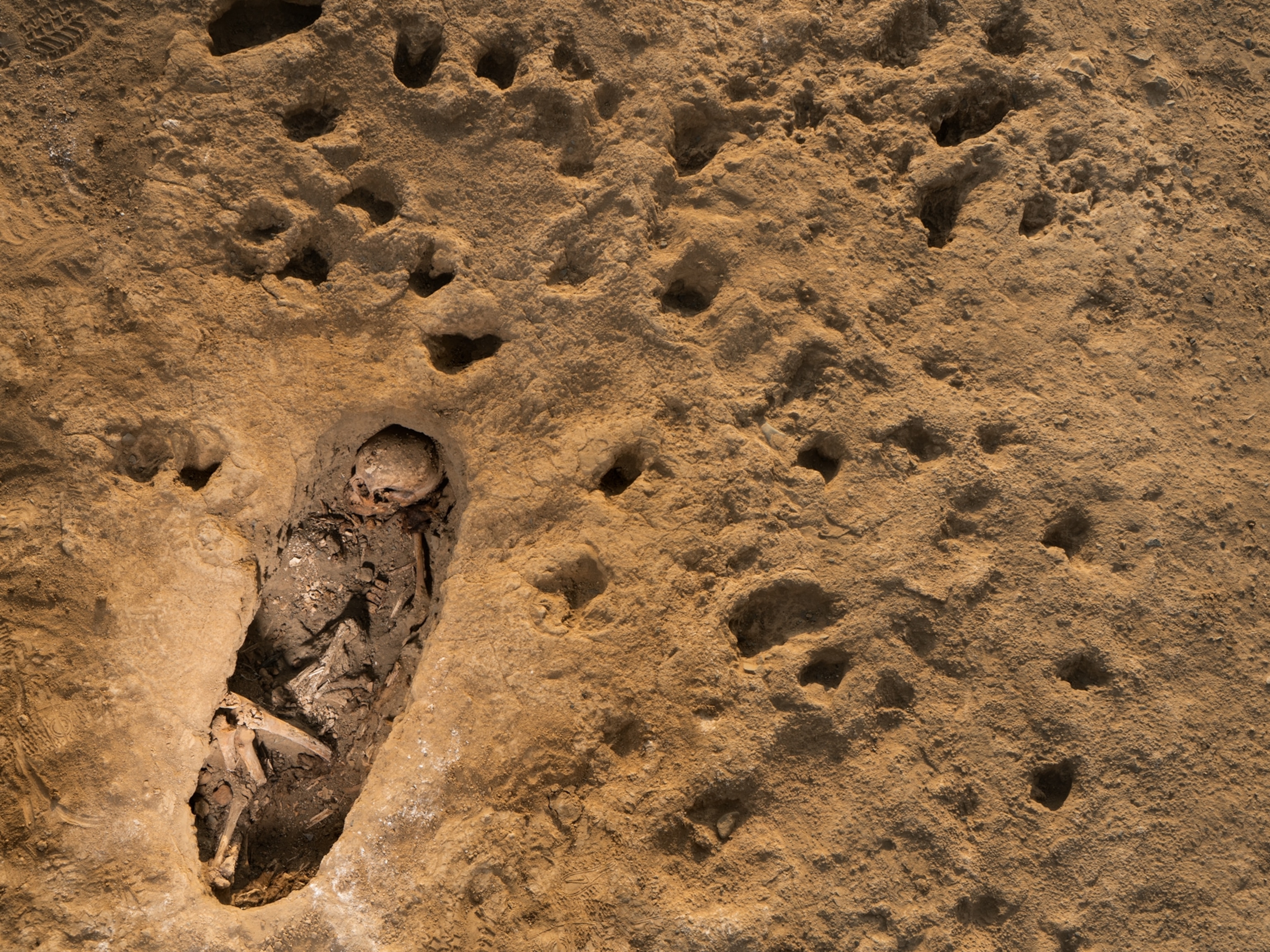
Why cold weather doesn’t mean climate change is fake
Weather and climate aren't the same thing, and you can still expect harsh winter storms in a warming world.
Cold, Arctic air has descended on large portions of the U.S. and across the South, where this kind of extreme winter weather is rare. In Texas, residents have been asked to conserve energy to avoid electrical outages, and towns in Arkansas saw record low temperatures.
These snowy conditions and record cold temperatures follow the hottest year on record, a milestone made possible by climate change. It makes intuitive sense why a hotter planet leads to record high temperatures, wildfires, and droughts. So, how do you explain a cold winter in a world that scientists say is getting hotter?
First, it's important to understand the difference between climate and weather.
Climate is defined as the average weather patterns in a region over a long period of time. It's the difference between Europe's temperate Mediterranean zones versus the harsh, cold conditions of the Arctic tundra. Each of these climate regions experiences day-to-day fluctuations in temperature, precipitation, air pressure, and so on—daily variations known as weather.
Climate change is disrupting these predictable fluctuations, creating new climates that are warmer on average and more unpredictable.
How warming can lead to cooling
When the term "global warming" was popularized a few decades ago, it referred to the phenomenon of greenhouse gases trapping heat in the atmosphere and warming the average temperature of the planet. Though record high temperatures in many places have been one impact of this decades-long shift, scientists now understand that an atmosphere changed by rising levels of gases like carbon and methane leads to more changes than just warming.
Scientists believe Earth will experience more extreme, disastrous weather as the effects of climate change play out.
Arctic air is increasingly reaching southern latitudes, and North America can expect to see harsher winters as a result. That was the conclusion of a study published in 2017 in the journal Nature Geoscience. It found a link between warmer Arctic temperatures and colder North American winters. A separate study published in March of last year in the journal Nature Communications found the same link but predicted the northeastern portion of the U.S. would be particularly hard hit.
“Warm temperatures in the Arctic cause the jet stream to take these wild swings, and when it swings farther south, that causes cold air to reach farther south. These swings tend to hang around for awhile, so the weather we have in the eastern United States, whether it’s cold or warm, tends to stay with us longer," said study author Jennifer Francis in a press release.
The Arctic is warming, on average, four times faster than the rest of the planet, an effect called Arctic amplification. Scientists think this uneven rate of warming is weakening the polar jet stream—the band of air circling the Arctic that typically keeps Arctic air in northern regions—allowing frigid air to more easily dip into the South.
(Learn more about how an El Niño weather pattern is making this winter snowier.)
A future of extreme weather
Record cold temperatures and blizzards aren't the only extreme weather patterns expected.
As the jet stream slows, floods could last longer and droughts may become more persistent. One study published in Science Advances in 2019 predicted extreme, deadly weather events could increase by as much as 50 percent by 2100.
But we don't have to wait until 2100 to see how climate change is leading to deadly weather.
Scientists say the destructive, record-breaking weather we experienced last year is just a sign of things to come.
Related Topics
You May Also Like
Go Further
Animals
- What would the world look like without mosquitoes?What would the world look like without mosquitoes?
- Social media loves to villainize dolphins. Here's why it's wrong.Social media loves to villainize dolphins. Here's why it's wrong.
- How did wolves evolve into dogs? New fossils provide cluesHow did wolves evolve into dogs? New fossils provide clues
- This unorthodox method is saving baby parrots from extinctionThis unorthodox method is saving baby parrots from extinction
- A deadly disease that affects cats big and small found in U.S.A deadly disease that affects cats big and small found in U.S.
Environment
- ‘Corn sweat’—and other weird weather phenomena—explained‘Corn sweat’—and other weird weather phenomena—explained
- A sea tornado sank a yacht. We might see them more often.A sea tornado sank a yacht. We might see them more often.
- How billions of dollars are revolutionizing ocean explorationHow billions of dollars are revolutionizing ocean exploration
- Where to go stargazing in Chile according to a local astronomer
- Paid Content
Where to go stargazing in Chile according to a local astronomer
History & Culture
- Did Babe Ruth really ‘call’ this legendary home run?Did Babe Ruth really ‘call’ this legendary home run?
- The real history behind the legend of China's Monkey KingThe real history behind the legend of China's Monkey King
- How new technology transformed the American workforceHow new technology transformed the American workforce
- This secret Civil War sabotage mission was doomed from the startThis secret Civil War sabotage mission was doomed from the start
- This rare burial site reveals secrets about the Sahara's lush pastThis rare burial site reveals secrets about the Sahara's lush past
Science
- Why some say tennis is 'the world's healthiest sport'Why some say tennis is 'the world's healthiest sport'
- Your body ages rapidly at 44 and 60. Here's how to prepare.Your body ages rapidly at 44 and 60. Here's how to prepare.
- How do gold nuggets form? Earthquakes may be the keyHow do gold nuggets form? Earthquakes may be the key
- Astronauts getting stuck in space is more common than you thinkAstronauts getting stuck in space is more common than you think
Travel
- These are the must-see sights of Italy's Veneto regionThese are the must-see sights of Italy's Veneto region
- A guide to St John's, Atlantic Canada's iceberg capitalA guide to St John's, Atlantic Canada's iceberg capital




